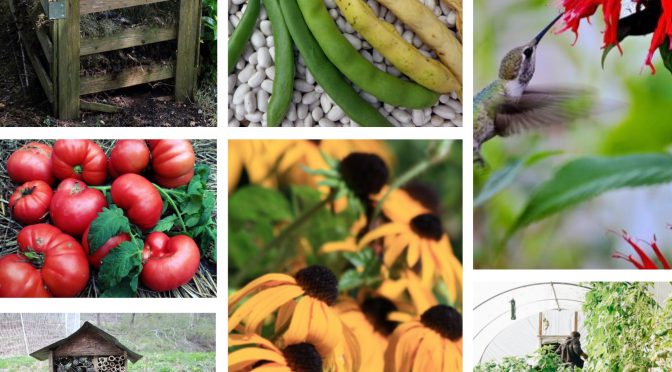Many folks make new year’s resolutions to live healthier lifestyles. Thankfully, gardening is a great way to improve your health. You’ll get exercise and eat better. For folks planning a garden in 2021, these resolutions can make your garden healthier too!
Never leave the soil bare.
Bare soil is unhealthy soil. Leaving soil exposed contributes to erosion and nutrient loss. Having cover crops or mulch covering your soil helps to create habitat for beneficial fungi and insects. Mulch can even help prevent the transmission of soil-borne fungal diseases like late blight in tomatoes.
Save seed.
Saving seed is easier than you think. Many crops like corn, beans, and squash require only simple seed processing. Isolation distances may be less important than you’d think too. Check out our post, Easy Seed Saving with Promiscuous Pollination.
Seed saving helps preserve incredible varieties, adapt them to your climate, and save you money.
Start composting.
Compost is excellent for improving your soil. It adds organic matter, which helps improve soil structure, allowing sandy soils to hold moisture and clay soils to drain better. It also provides plants with nutrients.
Composting also keeps waste like kitchen scraps from ending up in the landfill where it would produce greenhouse gases.
You can find detailed instructions for making compost here.
Plant something native.
Growing native plants is a great way to provide food and habitat for native wildlife, from birds and small mammals to bees, butterflies, and other beneficial insects. Native plants are also typically low maintenance because they’re hardy and adapted to your climate.
Here’s a list of drought-tolerant perennials native to the eastern United States.
Start a garden journal.
This season, take notes on the weather, planting dates, your garden design, and what varieties did well. This process will help you connect with nature and improve your garden each year.
Install a rain barrel.
Put the water off your roof to good use with a rain barrel. They can be purchased or made cheaply with some gutter and a clean trash can.
Test your soil.
Knowing what your soil lacks is the first step to improving your yields. Have your soil tested and learn more about plant nutrients and amendments.
Rotate your crops.
Rotating your crops can help you avoid pest and disease issues and improve your yields. This season keep track of where you plant things and have a plan for rotating them.
Check out Planning Crop Rotation by Plant Family for advice.
Build an insect hotel.
An insect hotel is another excellent way to support beneficial insects. They provide nesting spots for solitary bees, which in turn help pollinate your crops. Learn how to build an insect hotel here.
Learn about your local birds.
One of the best parts of gardening is building a connection with the land. A great way to take this further is by learning about birds and other local wildlife. Some species may be helping your garden grow!
Share.
Share something with a friend, relative, or community member. Share your knowledge and teach them to grow some of their own food. Share seeds so they can grow great varieties. Share a bit of your harvest and cultivate a love for good food.
What are your new year’s resolutions?

